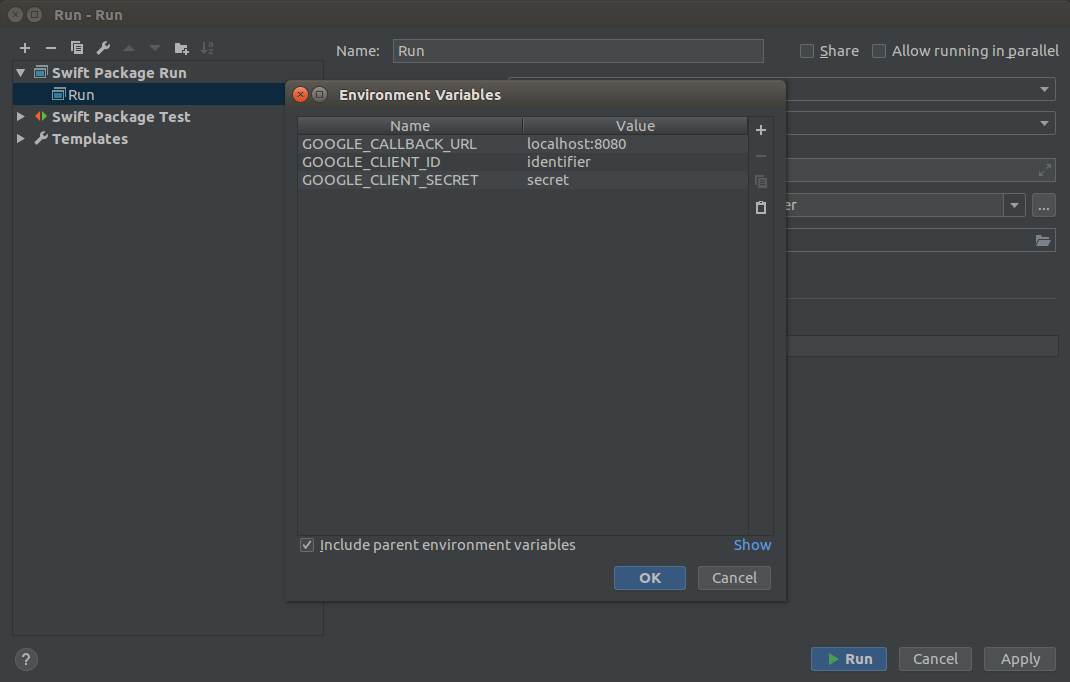
Much like ‘origin’, the ‘pkg’ branches will keep moving forward via the importer and running git fetch pkg will keep your local remote-tracking branches up to date. As shown above, the first time run git ubuntu runs, it will prompt for a Launchpad ID that will be cached for future use in ~/.gitconfig. The second is a derived remote name based upon a Launchpad ID.

‘pkg’ will be the same for all users and is similar to ‘origin’ that git users will be familiar with. First, we obtain a local copy of the repository***: git ubuntu clone php7.0 Let’s say we are interested in looking at the state of PHP 7.0 in Ubuntu. Help is available via git-ubuntu -help and man-pages are currently in development** Using git ubuntu clone
#Clion ubuntu install#
To install it on Ubuntu 16.04 or later: sudo snap install -classic git-ubuntu. Git-ubuntu is distributed as a “classic” snap. As Robie alluded to in his introductory post, one of the consequences of the git ubuntu importer is that there is now a standard way to obtain the source of any given source package: git ubuntu clone* Getting git ubuntu clone git ubuntu clone will be the entry point for most users to interact with Ubuntu source packages, as it answers a common request on IRC: “Where is the source for package X?”. In this post, we will introduce the git ubuntu clonesubcommand and take a brief tour of what an imported repository looks like.


As mentioned there, it is important to keep in mind that the tooling and implementation are still highly experimental. There is an index of all our planned posts in the first post.
#Clion ubuntu series#
CodeBlocks, eclipse, Dev C++) where you specify what you need the compiler to do via a GUI and not via CMake (although CMake is arguably more convenient).This is the second post in a collaborative series between Robie Basak and myself to introduce (more formally) git ubuntuto a broader audience. You can also opt for a different IDE (e.g.
#Clion ubuntu code#
# A name for your executable file and the code files needed to build itĪdd_executable(YourExecutableName source_file1.cpp somefolder/source_file2.cpp header_file.h) A minimal cmake project looks like # Specify cmake language version to use for this file In CLion, the way you specify how exactly it should invoke the compiler is via the CMake language (not to be confused with the unix tool make which chiefly only knows to run commands conditionally on file modified date).ĬMake code should be placed in a file named CMakeLists.txt in the project root directory (sometimes CLion creates this file for you automatically). IDE (stands for Integrated Development Environment) is a program which incorporates (minimally) a text/code editor, a compiler and a debugger (all of which it invokes normally via command line, just as you can do yourself).ĬLion is an advanced (and excellent) IDE.

#Clion ubuntu windows#
A default / pre-installed one on Ubuntu is gcc / g++ (whereas on Windows you need to actively install one).ĬLion is an IDE and (exactly like any other IDE) can run the compiler for you. To generate an executable file from C / C++ code you ("only") need a C/C++ compiler. Under linux, they are usually extension-less. Under Windows executable files are marked with an. First, a clarification: an executable file is a file that can be executed by the system.


 0 kommentar(er)
0 kommentar(er)
